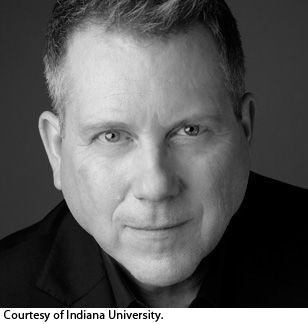Eugene O'Brien, Composer 1979 CLEVELAND ARTS PRIZE FOR MUSIC
In 1981, O’Brien succeeded Erb as chair of the CIM composition and theory department. Two years later, he completed a D.M.A. degree at the institute and Case Western Reserve University. In 1985, he joined the music faculty at Catholic University in Washington D.C., where he taught for two years before moving to Indiana University, where he serves as professor of composition and executive associate dean in the Jacobs School of Music. Born in Paterson, New Jersey, on April 24, 1945, O’Brien was introduced to the music of Stravinsky, Ives and Varese at an early age by his aunt, Margaret Stanley Hall. He first studied composition with Robert Beadell at the University of Nebraska in Lincoln, where he completed undergraduate and graduate degrees in music. A Fulbright scholarship enabled him to study with Bernd Alois Zimmermann in Cologne, Germany. O’Brien’s Elegy for Bernd Alois Zimmermann (1970) won the Rome Prize and a two-year fellowship at the American Academy in Rome. Before launching his career in Cleveland, O’Brien studied with renowned composers Iannis Xenakis and John Eaton at Indiana University. Eugene O’Brien has written orchestral, chamber and vocal works. He has received numerous commissions, grants, awards and fellowships. His compositions have been performed by the Cleveland Orchestra, Blackearth Percussion Group, Aspen Festival Players and many new music ensembles. He gives his works evocative titles to help listeners find “a way into the music.” Embarking for Cythera (1978), written for Reconnaissance, was inspired not by Jean-Antoine Watteau’s famous painting but by an essay describing the mythical island. In this exquisite tone poem, the composer combines timbres and articulations like a painter mixing colors and materials. Black Fugatos (1983), its title drawn from a poem by Wallace Stevens, requires five players to negotiate a complex, unsynchronized score by using visual cues. Mysteries of the Horizon (1987), inspired by a 17th-century engraving, “springs from a post-Webernian sensibility” and “ends surprisingly with a Wagnerian gesture and Mahlerian coda,” wrote a Cleveland critic. In a 1980 Plain Dealer interview, O’Brien said American composers should try to stay out of universities because of the dangers of getting “too far from the musical establishment and too enmeshed in academic attitudes.” At Indiana University, however, he has managed to balance his creative career with the demands of teaching and administrative duties. In 2008, he was honored with a University of Nebraska Alumni Achievement Award, which recognized him as “one of America’s premier composers and one of America’s premier music administrators in academe.” —Wilma Salisbury
|
Cleveland Arts Prize
P.O. Box 21126 • Cleveland, OH 44121 • 440-523-9889 • info@clevelandartsprize.org
 Eugene O’Brien came to the Cleveland Institute of Music in 1973 to teach composition and study with 1966 Cleveland Arts Prizewinner
Eugene O’Brien came to the Cleveland Institute of Music in 1973 to teach composition and study with 1966 Cleveland Arts Prizewinner